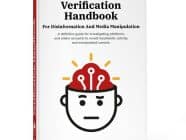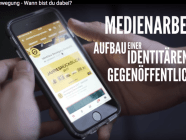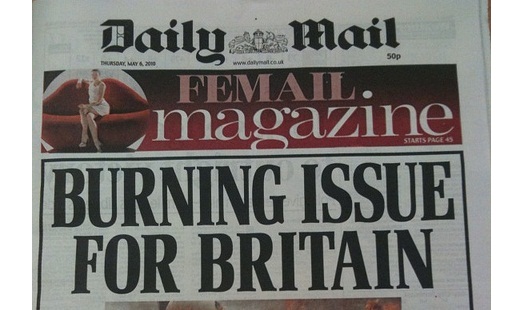Wikipedia was launched in 2001 and has become one of the most visited sites on the web. Journalists and researchers know that they should not rely on information it provides, but the temptation to use it occasionally is strong.
A report by Marvin Oppong for Otto Brenner Foundation takes an in depth look of the accuracy and fairness of information provided by Wikipedia, and focuses in particular on the way it can be manipulated.
Oppong seeks to analyse concealed public relations or PR in German Wikipedia. He sheds light on a number of practices companies and other interested parties (e.g. political parties, public organizations) can use to alter Wikipedia content to their advantage. Oppong himself does not define PR, but the study appears to assume it is understood as purposefully manipulated information opposed to impartial encyclopedic knowledge.
Wikipedia is collaborative project, with some 30 million articles worldwide and nearly 1,7 million entries in its German segment. Around 500 million unique visitors come to Wikipedia pages monthly. Most importantly, the Wikipedia pages often pop up as the first hit of Google search or will at least appear on the first page.
Mainstream media often link directly to the website: Germany’s Tageszeitung and Süddeutsche Zeitung are among the sites that have linked to Wikipedia in their online articles.
So, it comes as no surprise that companies are interested in harnessing its potential to get exposure to millions of people.
Raphael Rahn of Lewis PR, one of two experts interviewed for the report, said: “It is attractive for every company to be represented with a Wikipedia article”.
Daniel Rehn of achtung! PR agency noticed that the companies are now interested in making sure their brand has certain values, emotions and stories associated with it. Social media such as Facebook or Youtube are certainly the better mediums in which to do this, yet, for an average user Wikipedia still remains the first reference and primary source of factual information.
An open platform, Wikipedia prides itself on the community of contributors it built over time. But, what is considered Wikipedia’s strength is at the same time is its main weakness, since anyone can become an editor. The openness of the platform makes it susceptible to falsifications which even the ‘collective intelligence’ of a vigilant community cannot always prevent. Oppong speaks of an entire ‘toolbox’ for feeding PR content to the platform. Methods range from content removal, rewriting and cover-ups to inserting of false information and participation in editors’ discussion. For example, paid editors can slip into a community of editors by writing a lot of relevant, non-promotional content. By doing this, users can earn a higher rank within community which can later be exploited to enter PR content. There are events (e.g. round tables, writing workshops) organized for the editors in which anyone can participate to mingle with the crowd and gain the trust of other members. Furthermore, PR people can create so-called single-purpose accounts and use multiple IP-addresses.
Interested parties can also resort to information removal. Although it is not easy to erase negative passages from Wikipedia pages, it is indeed feasible with “necessary boldness and a bit of luck”. The author speaks of numerous cases of content being changed to remain incomplete for months, as was with the entry about Boehringer Ingelheim, a pharmaceutical. Using a computer registered to the company’s IP-address someone removed an uncomplimentary section which disclosed that the firm produced Agent Orange, a dangerous herbicide used in chemical warfare. The report also claims the drug industry to be particularly active in the field of Wikipedia publicity. The companies try to improve their image by removing critical paragraphs from their articles.
The presence of political PR is another sensitive subject within Wikipedia community as it appears that political players and their proxies try to use the online encyclopedia to score publicity points. The study cites a case of a particularly enthusiastic user who was an avid discussion participant responsible for nearly 15,000 editings on a variety of subjects. Among other articles, the Wikipedia writer corrected the page of German Free Democratic Party some 15 times and deleted both critical statements and links to unfavorable mass media materials. The anonymity of contributors meant that other editors could not establish the nature of user’s relationship to the political party.
Suspicious practices are not limited to the level of ordinary users however. The report reveals that high ranking officers within Wikipedia itself can also be involved in what often looks like conflict of interest. Oppong draws attention to the story of Arne Klempert who took a job with a major PR agency while still serving as a member of the Wikimedia Foundation board, the non profit organization that runs Wikipedia.
The report ends with several suggestions on how prevent information manipulation on Wikipedia. The Wikipedia accounts that are run on behalf of companies and other interested parties must be clear about their origins. Sanctions need to be applied when Wikipedia rules are violated. Finally, support for overall media literacy remains a priority and has to be advanced by educational institutions.
Report is available in German from the website of Otto Brenner Foundation: Oppong, Marvin (2014) Verdeckte PR in Wikipedia: Das Wetlwissen im Visier von Unternehmen
Photo credit: Cary Bass / Flickr Cc
Tags: manipulation, Marvi Oppong, Media Manipulation, news media, Otto Brenner Foundation, PR, Public Relations, Wikipedia












































